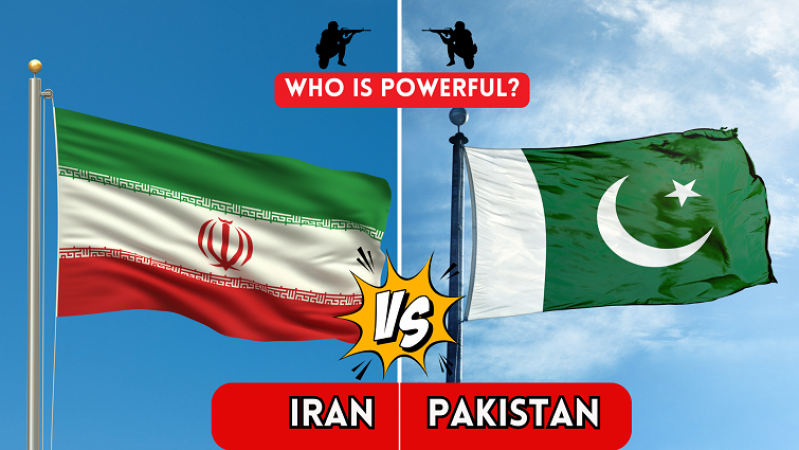
Iran and Pakistan are currently in a tense situation as they exchange missile and drone attacks, escalating hostilities between the neighboring nations. This recent development adds to the already heightened tensions in the Middle East, potentially leading to far-reaching consequences.
The tit-for-tat attacks targeted two Baluch separatist groups on both sides of the Iran-Pakistan border, jeopardizing diplomatic ties. These events coincide with ongoing conflicts involving Israel and Hamas, amplifying the complexity of the situation in the Middle East.
The sequence of events began with Iran striking the Sunni militant group Jaish al-Adl in Pakistan's Balochistan province. This prompted a swift denouncement from Pakistan, claiming a violation of international law and bilateral relations. In response, Pakistan launched precision military strikes, using drones, rockets, loitering munitions, and stand-off weapons against alleged separatist hideouts in Sistan and Baluchestan.
This recent willingness to target locations across the border without prior notification marks an escalation in the historical confrontations between Iran and Pakistan. Experts express concerns about the scale of the conflict and suggest that Iran's actions may be driven by broader regional ambitions.
The Baloch people, residing at the intersection of Pakistan, Afghanistan, and Iran, have a long history of desiring independence. Economic grievances, marginalization, and exclusion from projects like the China-Pakistan Economic Corridor contribute to their unrest.
The Sunni-Shia rivalry, Iran's relationship with Saudi Arabia, and the situation in Afghanistan further complicate the geopolitical landscape. The rise of the Taliban presents challenges and opportunities for both Iran and Pakistan.
As the situation unfolds, there are concerns about the possibility of a larger conflict between Iran and Pakistan. China has reportedly intervened to mediate between the two nations, both considered friends by China. The timing of Iran's provocation is particularly delicate for Pakistan, given its weak caretaker government and economic challenges.
The military's role in Pakistan adds complexity, as it seeks to regain standing among the populace. The potential consequences of retaliation or refraining from it pose a dilemma for Pakistan. The international community closely watches the developments, with the US and Russia supporting Pakistan and Iran, respectively.
The situation remains delicate, and the mutual strikes between Iran and Pakistan raise the risk of a wider regional conflict. Balancing interests and avoiding being drawn into a conflict is a challenge for Pakistan, given its intricate relationships in the Middle East and beyond. The world closely monitors the developments in this volatile region.
Tensions Soar as Pakistan and Iran Exchange Airstrikes, Civilian Lives at Risk
Pakistan Expels Iranian Ambassador, Recalls Its Own in Response to Missile Strike